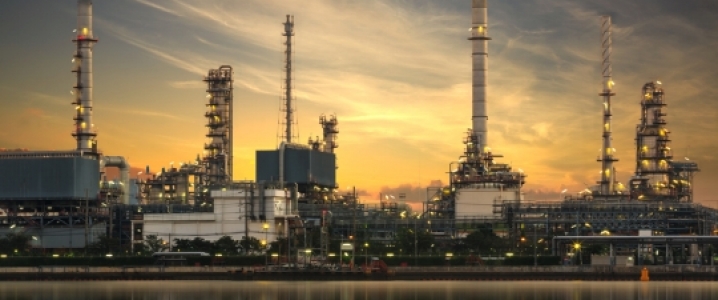Peak oil demand might be near, but the consumption of oil for plastics will keep demand elevated for decades. Indeed, the IEA has said that plastics and other petrochemicals are the only sector in which oil consumption could continue to grow well into the 2030s.
Rising plastic consumption is driven by population growth, higher median incomes and urbanization. Plastic production and consumption has absolutely skyrocketed over the last two decades and the growth in emerging economies such as China and India will ensure that consumption continues on its steep upward trajectory.
While there are multiple feedstocks for plastics, solvents and other derivatives, the two main feedstocks are ethane and naptha, which come from natural gas and crude oil.
Oil demand in the transportation sector is expected to peak, and while there is a great deal of disagreement over when we might arrive at that date, many forecasts converge at around the 2030s as the most likely period. But long before then, oil demand for transportation will begin to slow as more and more electric vehicles cut into the market share of the internal combustion engine.
With oil demand in transit slowing, petrochemicals take on a larger role. Over the next two decades, petrochemicals could account for the largest portion of oil demand growth, and by 2035, petrochemicals will “account for almost all growth” by 2035, according to a new report from Wood Mackenzie. Surging petrochemical production and consumption largely comes down to plastics. Related: LNG: China’s Biggest Weapon In The Trade War
To be sure, the ghastly levels of plastic in the world’s oceans and waterways have sparked a nascent movement to ban plastic, at least in some form. Starbucks made headlines when it recently announced plans to phase out plastic straws by 2020. In their place, Starbucks will use a recyclable strawless lid and alternative materials for straws. The company also said it would spend $10 million to develop compostable cups.
Meanwhile, governments are also slowly beginning to target plastic. States and municipalities have placed taxes on plastic bags at the checkout counter, or banned them altogether. Europe is mulling a ban on plastic bags. “However, in their current form, these decisions are likely to have only a marginal impact,” Bank of America Merrill Lynch wrote in an August 3 research note. “While a clear risk to our view, we do not see enough support for recycling and alternatives for now to significantly move the needle on petrochemical oil demand.”
Consumption is rising because plastic is extremely cheap, so finding alternatives is tricky. “Plastics are incredibly efficient and cost effective and finding alternative solutions for their myriad applications and benefits is not easy. It’s also going to be more expensive and few want to incur the burden of higher costs,” Wood Mackenzie wrote. “The aspirations to curb plastics is long on intentions and short solutions.” There are a variety of bio-based alternatives that companies are exploring, but “plastics are just too efficient to be easily replaced,” WoodMac concluded.
WoodMac noted a few upsides to plastics, including reduced food spoilage, reduced transit costs and fuel consumption. “If plastic food packaging is banned, spoilage increases and this will lead to more land, water, pesticides, equipment and so on being consumed. In the end, is this better for the environment?” Paper is often cited as an alternative to plastic, but paper production has a larger carbon impact than plastic, WoodMac says. Related: Caught In The Crossfire: The Unintended Victim Of Iran Sanctions
Still, a shockingly low percentage of plastic is recycled. According to Bank of America Merrill Lynch, packaging accounts for about 36 percent of plastic production. But only 14 percent of plastic in packaging is recycled, with the rest either incinerated, littered or sent to a landfill. Sorting is a big issue because different materials need to be processed in different ways. Meanwhile, as the volume of plastic in individual packaging is reduced, it becomes less profitable to recycle. This practice, known as “lightweighting,” actually leads to reduced recycling rates. Plus, plastic replete with food and drink is too dirty to recycle and ends up discarded into a landfill.
Overall, oil and natural gas demand for the production and use of plastic is set to rise substantially in the years ahead, although prices will influence the rate of growth. “It is important to mention that recycling will also be impacted by oil prices. High oil prices lead to high chemical prices, incentivising recycling,” WoodMac wrote. “Low oil prices result in lower virgin [plastic] prices making it difficult for recycled products to remain economically viable.”
Ironically, EVs could keep plastic consumption aloft. EVs could lead to a peak in oil demand and potentially push the oil market into decline. But that could translate into a structural decline in prices as demand in transportation steadily falls. Cheap oil, in turn, may keep demand elevated in the petrochemical sector, boxing out alternatives to plastic.
It’s a tough nut to crack. But any campaign to definitively break the fossil fuel addiction is going to have to systematically include a colossal effort to wean the global economy off plastic. As of now, it’s hard to envision. The conundrum of plastic makes the campaign for electric vehicles look easy by comparison.
By Nick Cunningham of Oilprice.com
More Top Reads From Oilprice.com:
- Shale Profits Remain Elusive
- Oil Prices Fall On Significant Crude Build
- Crude-By-Rail Could Save The Permian Boom


















